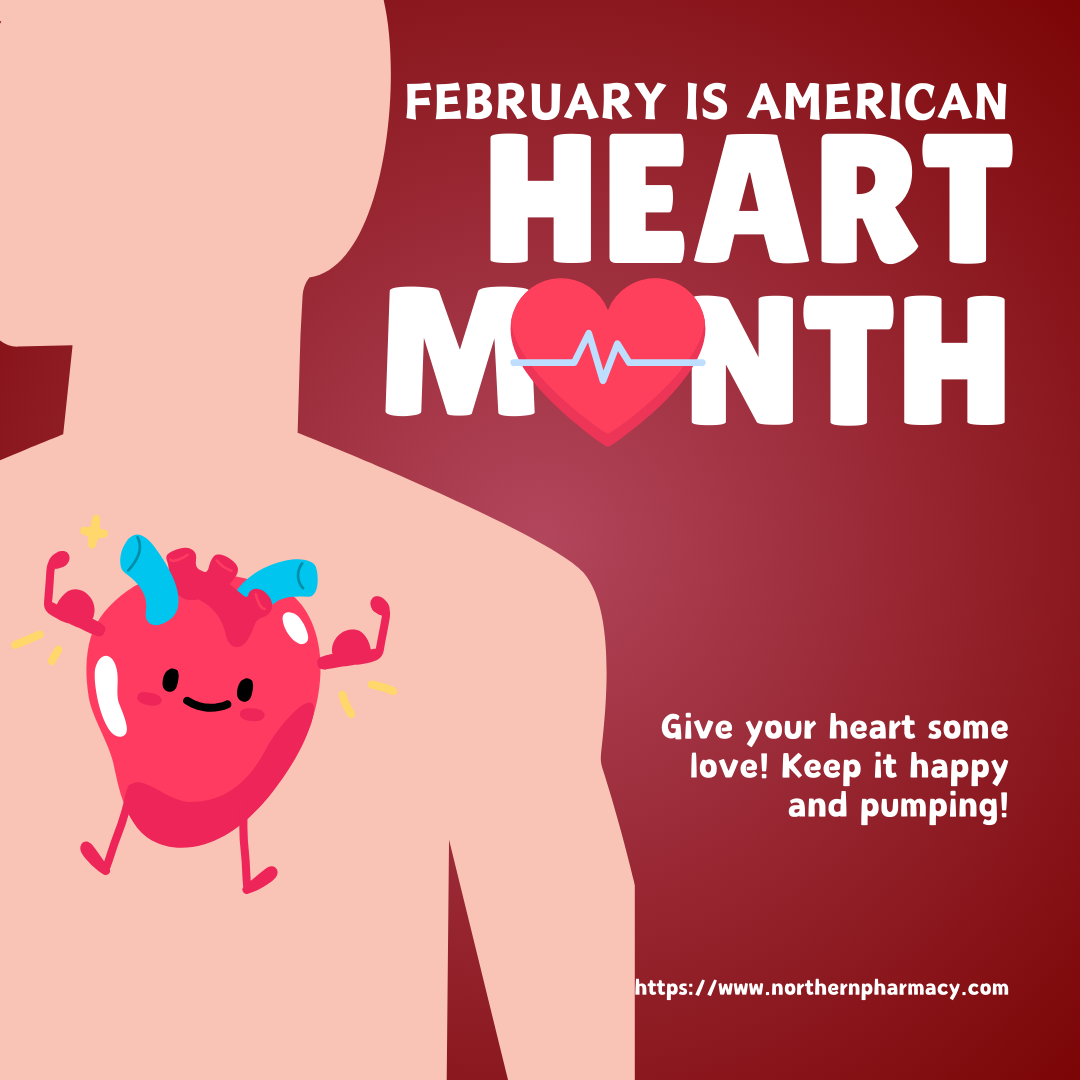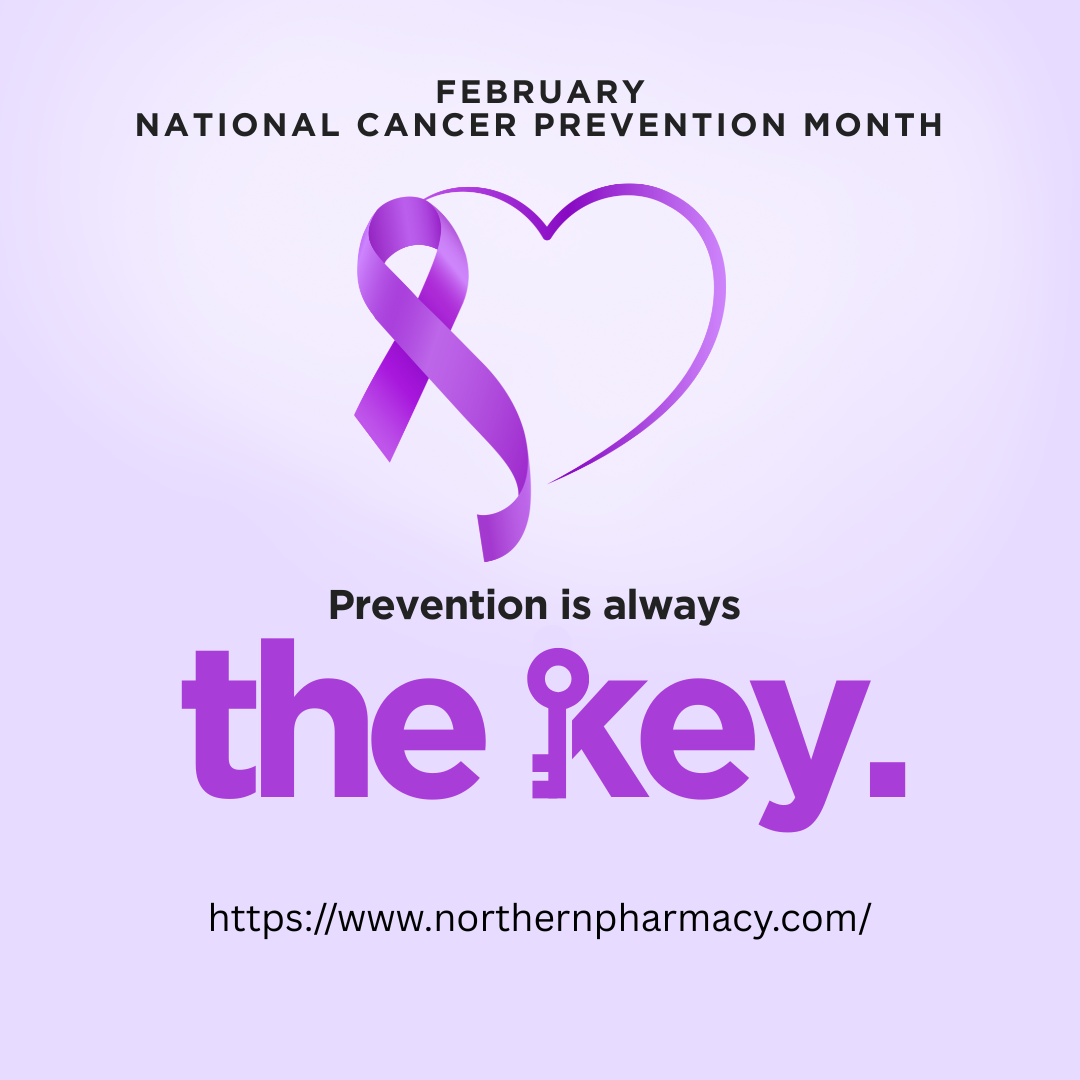EDUCATION
February
February is American Heart Month
Heart health starts with everyday care and trusted support. At Northern Pharmacy & Medical Equipment, our team is here to help you stay on top of your heart health—from medication counseling and blood pressure support to heart-healthy OTC products and personalized guidance.
Simple tips to support a healthy heart:
❤️ Know your numbers (blood pressure, cholesterol, blood sugar)
🚶♀️ Stay active with movement you enjoy
🥗 Choose heart-healthy foods and limit sodium
😌 Manage stress and prioritize quality sleep
💊 Take medications as prescribed and ask questions
👉 Explore more heart-healthy tips and resources:
https://www.heart.org/en/healthy-living
National Cancer Prevention Month is a time to focus on prevention, early detection, and supportive care. While not all cancers can be prevented, making healthy choices and undergoing regular screenings can help reduce the risk and improve outcomes.
Cancer prevention tips include:
🩺 Stay up to date on recommended screenings
🚭 Avoid tobacco and limit alcohol use
🥗 Eat a balanced diet and maintain a healthy weight
🏃 Stay physically active
☀️ Protect your skin from harmful UV exposure
At Northern Pharmacy & Medical Equipment, our AmendRx team provides specialized pharmacy support for patients undergoing cancer treatment—offering personalized care, education, and coordination to help patients feel supported throughout their care journey.
👉 Learn more about cancer prevention, screening, and education:
https://www.cancer.org/healthy.html
Monthly Health Topics
Training Videos
HIV Education
Learn more about the importance of medication in the treatment and prevention of HIV.
Educational information from www.helpstopthevirus.com.
Men’s Health
Northern Pharmacy - Erectile Dysfunction Seminar 2021
A discussion for Men's Health. Erectile Dysfunction and compounding pharmacy treatments that can help.




